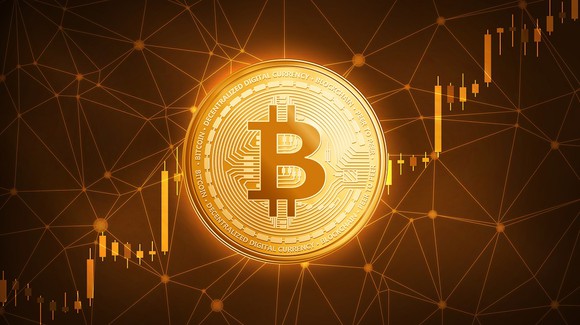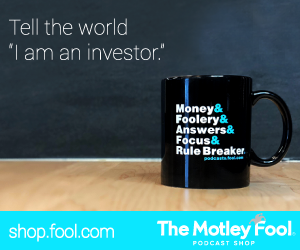Dissecting Riot Blockchain's Shareholder Update
CNBC published a devastating investigation into Riot Blockchain (NASDAQ:RIOT) last Friday that shined a light on what's really going on behind the scenes of one of the most well-known "blockchain" stocks.
After turning down CNBC's request for an interview, Riot responded to CNBC's report by way of a shareholder update, providing a long timeline of events since Riot pivoted from biotech company to a holding company for cryptocurrency-related investments. In the article below, I've taken snippets from Riot's press release and added my own commentary.
Let's go through Riot's shareholder updates, one by one.
- Riot's winning investment
Riot Blockchain had a lot to say about its seemingly large winner in its portfolio of blockchain-related companies, Coinsquare, writing the following in its press release:
Riot Blockchain initially entered the blockchain sector with an investment in goNumerical ltd (dba "Coinsquare"). Coinsquare has grown into the leading digital currency exchange in Canada and recently raised an institutional round of financing at a CAD $430 million valuation, led by a global asset manager with over a trillion dollars in assets. This valuation is over 15x higher than the valuation at which Riot first invested. Riot currently owns approximately 12.5% of Coinsquare, a stake now valued over CAD $50 million.
By all appearances, Coinsquare has been a winning investment for Riot Blockchain. The exchange is a major player in Canada, where it had about 35% market share of crypto trading volume in the last 30 days, according to data from CBIX.ca, which collects trading data from the major exchanges.
At recent prices, Coinsquare clients traded bitcoin (BTC-USD) worth about $150 million in the last 30 days. Coinsquare's stated fees on each transaction vary from 0.1% up to 0.5% on each trade. If we assume an average take rate of 0.5% on all transactions, Coinsquare is generating about $9.1 million of annual revenue on a run-rate, compared to a valuation of $341 million U.S. Dollars.
Therefore, Coinsquare's recent valuation is roughly 37 times run-rate transaction revenue. That valuation seems absurdly high (37 times sales!), but again, details are sparse, and private company valuations can be really finicky things. 2. Riot's fundraising abilities
2. Riot's fundraising abilities
Access to capital is important, and Riot noted that it hired Canaccord Genuity to help raise money as recently as December 2017:
"Riot closed on a $37 million financing at $22.50 per share in restricted stock with several billion-dollar institutions as investors. Canaccord Genuity acted as the financial advisor on the financing."
The key missing detail here is that Riot Blockchain issued stock and warrants at prices substantially lower than then-current market prices when it raised capital in December. Sure, that Riot Blockchain was able to raise capital in an underwritten deal gives it some credibility, but this is Canaccord Genuity we're talking about. The Canadian investment bank will underwrite just about anything.
Canaccord Genuity has acted as advisor and/or underwriter for sketchy marijuana stocks, MoviePass's parent company, and Riot Blockchain. That's a long way of saying Canaccord Genuity is not Goldman Sachs, though I suspect even Canaccord will be turned off on future deals thanks to the CNBC piece. The capital markets are likely closed to Riot Blockchain today.3. Riot is buying mining equipment hand over fist
Riot Blockchain said in its latest update that it now owns 8,000 mining rigs, which are used to mine for cryptocurrencies like bitcoin and litecoin (LTC-USD):
Riot now owns a total of 8,000 ASIC cryptocurrency mining machines. This consists of 7,500 Antminer S9 Bitcoin miners and 500 L3+s, all manufactured by Bitmain.
When deployed in full, Riot's bitcoin mining operation's expected hashing power is over 110 Petahash of SHA 256 Bitcoin mining computing power and 252 Gigahash of Scrypt for Litecoin mining based just on current equipment that Riot owns. Additional expansion opportunities based on power capacity are available.
Riot Blockchain's foray into the mining business is interesting because of just how much it likes to overpay for mining rigs through complicated arrangements that don't pass the smell test.
Riot closed on the first bulk deal of mining rigs on Nov. 6, 2017, a transaction which included 700 Antminer S9s and 500 Antminer L3 rigs. The acquisition was done in a roundabout way, as Riot acquired a two-week-old corporate entity whose primary assets included $2.1 million of equipment and $1.1 million of cash. For that, Riot paid about $12 million in the form of convertible preferred stock.
More recently, on Feb. 15, Riot agreed to purchase 6,800 more AntMiner S9 rigs from two sellers on vastly different terms.
Rig Seller
Number of S9 rigs
Total consideration
Implied price per rig
Blockchain Mining Supply & Services
3,000
$8.5 million
$2,833
Prive Technologies LLC
3,800
$28.2 million
$7,421 ($2,895 in cash, $4,526 in stock)
DATA SOURCE: 8-K FILING.
It is completely inexplicable why Riot Blockchain would pay very different prices for the same rigs, on the same day, sourced from two different sellers. An eBay search shows that AntMiner S9 rigs have sold on the secondary market (in new condition!) for no more than $2,700 to $3,200 each, even after accounting for shipping, suggesting that the deal with Blockchain Mining Supply & Services was reasonable.
The price it agreed to pay for Prive Technologies' rigs was anything but reasonable, however. Riot Blockchain essentially paid full price for its rigs in cash and sweetened the deal with unnecessary upside in the form of $17.2 million of stock. Someone is getting rich from these transactions, but it is not Riot Blockchain's shareholders.
- The new pipe dream
Riot is trying to start its own cryptocurrency exchange in the United States, which it wants you to take seriously.
Riot has entered a Letter of Intent to acquire a CFTC licensed registrant. Riot intends to pursue launching a digital currency exchange and futures brokerage in the United States.
Cryptocurrency exchanges are a very lucrative business, as evidenced by Riot's investment in Coinsquare, and the fact that a market-leading exchange, Coinbase, generated more than $1 billion of revenue in 2017 by acting as the middleman for cryptocurrency trades.
But exchanges are lucrative precisely because they are difficult to start. Riot's new exchange would put it in direct competition with Coinbase's GDAX and the Winklevoss twins' Gemini exchange, both of which are based in the United States. It would also put Riot Blockchain in competition with established discount brokers, who offer bitcoin futures to their sophisticated clients.
While we're on the subject, Riot's foray into the exchange business also raises a lot of question marks. It plans to acquire a "CFTC licensed registrant" that is owned by one of its shareholders who has ties to Barry Honig, an investor who led the charge to turn the money-losing biotech formerly known as Bioptix into Riot Blockchain as we know it today. This acquisition is in the gray area between a clean deal and an almost related-party transaction. It's simply suspect. 5. An update on an early investment
5. An update on an early investment
One of Riot's earliest crypto-related investments was in Verady, a company which provides accounting and audit services for cryptocurrencies. A brief, but non-financial update was included in Riot's press release.
Bo Shen co-invested in Verady as well and joined the board of Verady. Bo Shen is a well-regarded investor in the space and a general partner of Fenbushi Capital.
I don't know what to make of Verady. To my knowledge, Riot hasn't disclosed what it paid for a stake in Verady, so I assume it was immaterial. Any developments from the company, then, are likely also immaterial to Riot's financial condition, otherwise, I'm sure we would have heard more about it.
- Buying some crypto
Riot bought some bitcoin at auction:
Successfully registered in and acquired 500 bitcoins in the U.S. Marshals Service bitcoin auction.
More detail is necessary here. A Bloomberg article includes a quote from Riot CEO, John O'Rourke, who said that the bitcoin was purchased "at about the market price at the time." This was no bargain deal.
Whatever you may think about the investment prospects for bitcoin, it's difficult to argue that buying bitcoin creates real shareholder value for Riot investors. Riot Blockchain has an overhang of stock options and warrants that stand to dilute any value creation, even if bitcoin were to rise to $1 million each tomorrow morning. Shareholders can buy bitcoin on their own in their own accounts, where gains won't be diluted by option or warrant exercises.
- An interesting merger
One of Riot Blockchain's portfolio companies is merging with a suspect Canadian penny stock. Riot is excited about it, though:
Acquired a majority interest in Tess, which is developing a blockchain technology solution for the telecom industry. Tess has since entered a definitive agreement for a merger with a Canadian public company.
Riot doesn't name the company with which Tess will merge, but an earlier press release identifies a company by the name of Cresval Capital Corp. Cresval is a money-losing gold and copper miner, whose shares trade for all of $0.04 each on Canadian stock exchanges.
On an average day, about $58 of Cresval Capital stock trades hands. Merging a private company with a public company is often described as a "liquidity event," since the owners have the ability to sell their shares on an exchange. I'm calling this an "illiquidity event" for Tess, given how infrequently Cresval shares trade.
- New hires
Riot hired some people who worked at other places before working for Riot:
Significantly enhanced the management, operational, and advisory team with the appointment of several key personnel with experience at market leaders such as IBM, Bitfury, Facebook, INVESCO, Coinsquare, Ocular, Safenet, Hyperblock, Globalive, and Dunbar Security Solutions. Signs point to trouble
Riot checks many of the boxes for a "bad" investment. It has adjourned two annual meetings, and perhaps never intended to hold them in the first place, as CNBC discovered it didn't reserve a conference room in the hotel where its latest meeting was supposed to be held. It has completely overhauled its board of directors and management team. Barry Honig, who has shown up as a major investor in other questionable stocks, was a major investor in Riot, too, though even he has sold most of his holdings.
Riot also massively overpaid for bitcoin mining rigs by issuing convertible preferred and common stock, and has issued stock and warrants at dilutive prices. Shares outstanding have exploded from 5.4 million shares at the end of September to 11.6 million shares at the end of December, thanks to its December 2017 equity raise and stock grants to insiders.
Meanwhile, the company has engaged in deals that blur the lines of related-party transactions, a key insider has sold a lot of stock, and it's now on its third auditor over a span of about one year, a detail hidden away in a January 8-K filing.
Riot Blockchain is emblematic of the bad things that happen when investors eager to latch on to the next hottest trend buy stocks simply because of their corporate name. By all appearances, Riot exists to transfer wealth from shareholders to its insiders and the owners of the companies and assets it acquires, making it a bad investment at any price.
Coins mentioned in post: